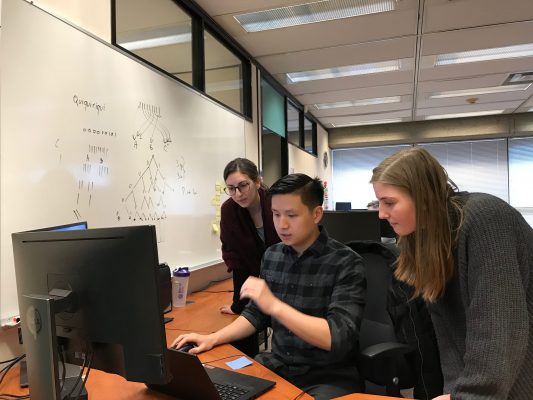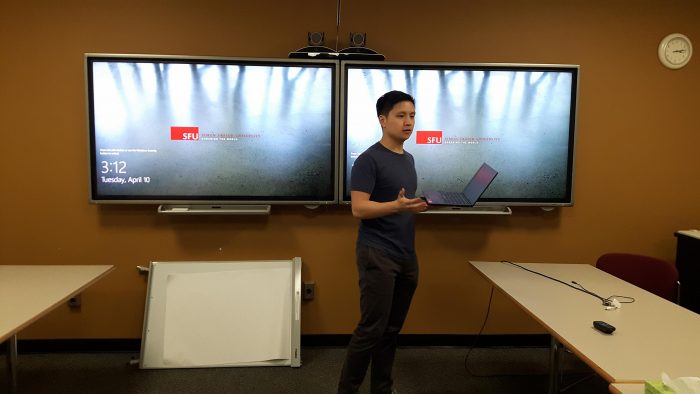
What is Technology?
For the latter part of my life when words like “Information Technology” came up in conversation, all I could picture was a bunch of computer geeks lined up in an assembly line formation in a basement doing “computer stuff.” I knew that I didn’t want anything to do with that. My co-op experience has changed that and has opened even more doors of collaboration than I could think of.
Now working in the technology field, it is not what I imagined. Working in technology requires a lot of collaboration with stakeholders, finding requirements from clients and problem solving within a team or individually. I’ve had the opportunity to spend the last four months working for SFU’s IT Project Management Office as a Project Administrator and it has been one of the most value-adding and enriching seasons of my life. The opportunity to apply the things I learned in a practical business environment has forced me to think beyond what I learned in the classroom. In fact, it has drastically shifted my view on how I produce quality work as it requires constant adaptability, patience, and dedication to a task.
Providing Value
The one thing I was reflecting on before my co-op term and now was continually asking “how can I provide value to the organization?” By tackling that question, I’ve found that by providing value to an organization, it has given me so much more in return. I like to think that as people are unique in their own ways, there are things only I can do to provide value that no one else can. Without having direct experience in a technology company, my biggest companion was my emotional intelligence that has been built on years of failures and successes. One of the key things I wanted to address in my term was how I was going to ask questions in the work environment. In my opinion, the way to provide value to an organization is coming up with a solution first (even if it’s bad) and then asking what your supervisor’s thoughts are. It is a lot easier to ask them before tackling it, but that is the easy way out. I have applied this to the projects I have been working on and it paid off as I was able to find solutions for workflow enhancement with patience and collaboration.

Core Projects
The organization uses SharePoint for a lot of its business processes; including documentation storage, collaboration, task management, etc. My task was to improve processes within the IT department and I was able to utilize licensed third party software to create automated workflows and forms within SharePoint. A lot of information had to be gathered by researching and collaborating with people that were not in my team, making me find a footing before I reached out to my supervisor for help.
I was also privileged to be part of SFU’s Email Calendar System Team as we migrated the university from the old email system to Microsoft Exchange. This was another area of work that focused more on documentation of email desktop client setups, email tutorials and meetings with staff from all over the university as this was a campus-wide initiative. I had to continually listen to many different users of the email system. They all had their own personal use for it and I had to cater the type of training to their email functionality. I was able to take a behind the scenes approach with the email system at SFU and see the wide impact it has on the university. It was an honour that I got to play a part in enhancing this important tool for both students and faculty.
Learning Outcomes
SFU’s Project Management Office now uses the workflows to help with documentation intake, automated notifications, project site development, and other features that enhance the fluidity of their processes. Never did I think my work would be used by SFU staff. This has allowed me to take an agile approach to the projects I’ve been working on because it allows me to take a continuous improvement approach. It’s taken many iterations and trial and error processes to continually make it better. Even though the workflow product is in place, I am continually communicating with stakeholders and listening to their changing requirements because the only way to grow is for adaptive change and to continually listen to what the consumer wants.
As someone who didn’t have a lot of direct experience in a technological company, providing value had to come from something much bigger than my direct skill set. I had to go out, talk to people, figure out my own solutions, and if I failed, I had to try again. I highly recommend the co-op program as it provided me value beyond the classroom, but it was where I was able to surprise myself with what I could bring to an organization.